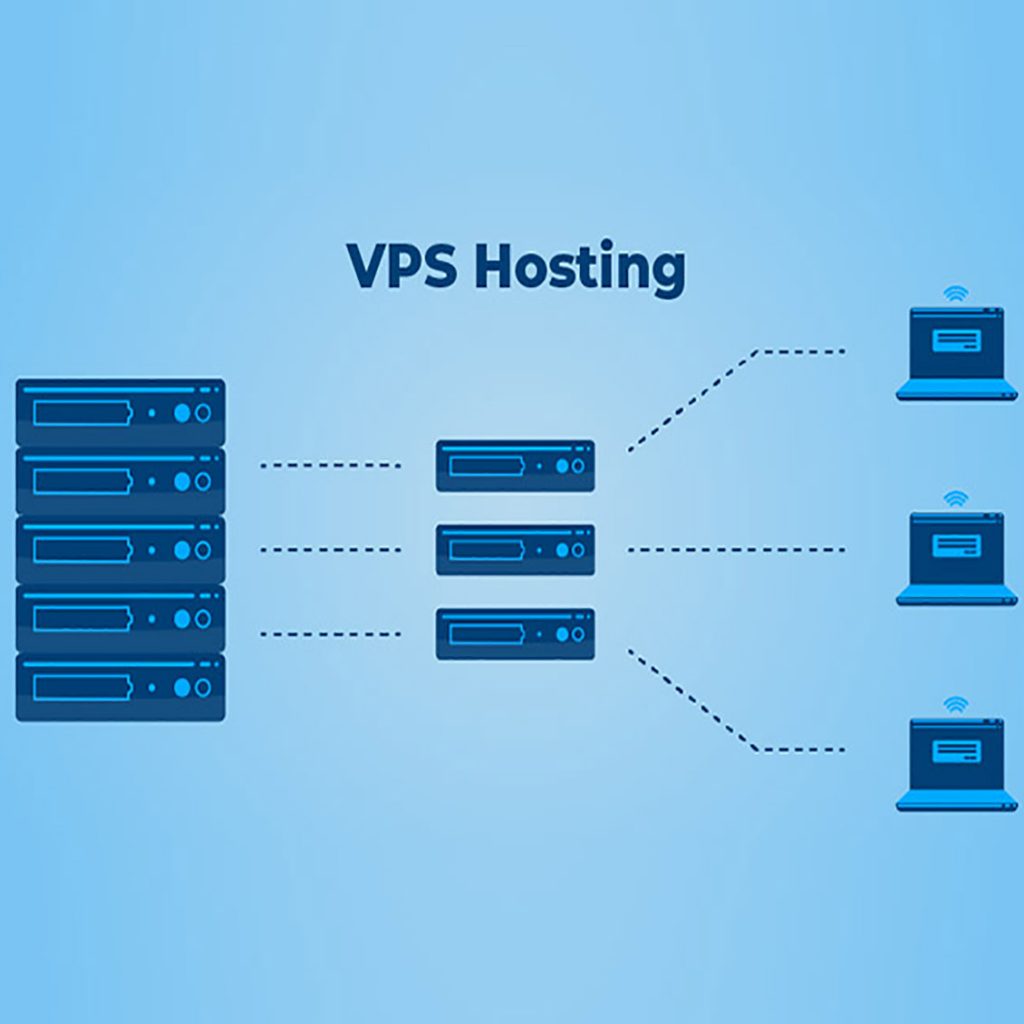
Choosing a Virtual Private Server: Everything You Need to Know About Quality VPS Hosting
HostingWhen I first started exploring VPS hosting in the United States, I’ll admit—it was intimidating. All the jargon, technical terms, and promises of “scalable performance” and “virtualized resources” made it feel like something out of science fiction. Over the years, however, I’ve learned that VPS hosting is a powerful middle ground between shared hosting and dedicated servers. It offers flexibility, performance, and independence without breaking the bank.
VPS hosting has become a staple for developers, small businesses, and even large enterprises. Platforms like InMotion Hosting, Hostinger, and IONOS have consistently impressed me with their VPS solutions, combining reliability, security, and scalability. If you’ve ever wondered whether a VPS is right for your website or application, here’s everything I’ve discovered—and what you really need to know.
Understanding VPS Hosting
At its core, VPS (Virtual Private Server) hosting is a single physical server divided into multiple virtual compartments, each acting like its own independent server. Think of it like a high-rise building: every apartment shares the same infrastructure, but each unit has its own dedicated space, utilities, and security.
This setup allows VPS hosting to deliver performance closer to that of a dedicated server while maintaining a fraction of the cost. Unlike shared hosting, where multiple websites compete for the same resources, a VPS ensures that your allocated RAM, CPU, and storage remain available for your website or application.
VPS hosting isn’t just for tech experts or large businesses—it’s a bridge between the simplicity of shared hosting and the raw power of a dedicated server. Developers, IT professionals, and mid-sized companies can benefit from its flexibility, scaling resources as needed without the expense and responsibility of managing physical hardware.

VPS Hosting vs. Cloud Hosting
One of the most confusing distinctions for newcomers is understanding the difference between VPS and cloud hosting. I like to think of it like this: all squares are rectangles, but not all rectangles are squares. Similarly, cloud hosting can utilize virtualized environments like VPS, but not all VPS setups are cloud-based.
Here are the key differences I’ve noticed:
- Scalability: Cloud hosting allows access to virtually unlimited storage, bandwidth, and processing power across multiple servers. VPS, by contrast, is constrained to the physical server it resides on, though most providers offer resource upgrades.
- High Availability: Cloud hosting typically comes with redundancy. If one physical server fails, another picks up the slack seamlessly. VPS reliability depends on the host’s infrastructure and monitoring systems.
- Pricing Models: Cloud hosting often charges by usage—sometimes by the minute—while VPS plans tend to have fixed monthly or annual pricing. That predictability makes budgeting easier for small businesses.
In my experience, VPS is ideal for websites that are growing beyond shared hosting but aren’t ready for full cloud infrastructure. It offers a reliable, affordable stepping stone toward scalable performance.
What is Managed VPS Hosting?
Managing a VPS requires technical expertise. Server maintenance, security patches, software updates, and monitoring can quickly become overwhelming for individuals or small businesses. That’s where managed VPS hosting comes in.
With managed VPS, the hosting provider handles the technical side—security updates, server optimizations, and even troubleshooting. While this service comes at a slightly higher cost, it allows you to focus on your website or business rather than system administration.
InMotion Hosting has consistently impressed me with its managed VPS solutions. Their team proactively monitors performance, applies security updates, and provides hands-on support, so even those without deep technical knowledge can enjoy VPS benefits without the headaches.
Advantages of VPS Hosting
The appeal of VPS hosting extends far beyond performance. From my observations and hands-on testing, these are the primary advantages:
1. Performance Boost
VPS hosting offers dedicated resources, meaning websites experience faster load times and more stable performance. I’ve hosted both high-traffic blogs and small e-commerce stores on VPS servers, and the difference in page responsiveness compared to shared hosting is remarkable.
2. Enhanced Security
Unlike shared hosting, where multiple users share the same environment, VPS compartments are isolated. This reduces the risk of one website’s vulnerability affecting another. Combined with managed security, firewalls, and SSL certificates, VPS hosting offers peace of mind for businesses handling sensitive data.
3. Scalability
VPS is designed to grow with your website. When traffic surges, additional RAM, CPU, or storage can be allocated quickly. Providers like Hostinger make resource scaling straightforward, ensuring websites remain accessible even during unexpected spikes.
4. Greater Control
I’ve appreciated the control a VPS offers. Root access, custom configurations, and support for specialized software like Node.js, MongoDB, or Docker allow developers and advanced users to tailor their server environments precisely. Shared hosting simply cannot compete in this regard.
5. Cost Efficiency
While VPS costs more than shared hosting, it is significantly cheaper than a dedicated server. For businesses looking for both performance and budget-friendliness, VPS hosting hits the sweet spot. Entry-level plans from providers like IONOS can start as low as \$2 per month, making it accessible for students or developers experimenting with new projects.
Who Uses VPS Hosting?
VPS hosting isn’t for everyone. I’ve noticed a distinct profile of VPS users:
- Websites with monthly traffic exceeding 100,000 visitors
- Developers running applications requiring specific server configurations
- Small businesses needing reliability without the cost of dedicated servers
- Agencies offering web hosting or reselling services
It’s less common for first-time website creators or casual bloggers to use VPS. However, managed VPS services reduce the learning curve, making VPS increasingly approachable for users willing to invest a bit more in stability and performance.
Linux VPS Hosting
Linux dominates the VPS market, powering roughly 70% of all websites I’ve worked with. When evaluating Linux VPS, I look for:
- Operating system options like CentOS, Ubuntu, or Debian
- Compatibility with common software such as MySQL, Apache, and PHP
- 24/7 expert support and managed security updates
- High uptime guarantees, ideally 99.99% or higher
Providers like InMotion Hosting and Hostinger excel in Linux VPS. I’ve relied on these platforms to host both WordPress sites and custom applications, finding their reliability and documentation invaluable.
Windows VPS Hosting
Windows VPS is essential for users who need Windows-specific software. When choosing a Windows VPS, I prioritize:
- Modern Windows Server versions with reliable backup systems
- Plesk integration for simplified server management
- SSH access via Windows SFTP
- 24/7 expert support
Windows VPS is less common than Linux, but necessary for applications dependent on Microsoft technologies. Only choose it if you have a specific requirement, as Linux VPS is generally faster, more secure, and more cost-effective.
Specialized VPS: WordPress and Reseller Hosting
Beyond standard Linux and Windows VPS, there are specialized VPS solutions optimized for specific use cases.
- WordPress VPS: Comes with pre-installed WordPress, CDN support, and caching optimizations. I’ve found these particularly useful for high-traffic blogs or small e-commerce sites.
- Reseller VPS: Equipped with white-label options, client management systems, and custom configurations for hosting businesses or freelancers. These VPS plans allow entrepreneurs to offer hosting services without purchasing physical servers.
Providers such as HostArmada and BoostedHost have excellent reseller VPS options that combine affordability, scalability, and support.
Finding Affordable VPS Hosting
VPS pricing has dramatically decreased over the years. Entry-level plans that once cost \$20 per month now start under \$10, and some providers like IONOS even offer VPS hosting for as low as \$2 per month.
However, the cheapest VPS isn’t always the best. Free or ultra-low-cost VPS services can come with poor performance, no customer support, and limited resources. They may be suitable for testing, development, or small-scale side projects, but not for live business websites.
When choosing a VPS, I balance cost against features, reliability, and support. Managed services, high uptime guarantees, and sufficient RAM/CPU allocation often justify spending a few extra dollars each month.
Key Features to Look for in a VPS
From my testing and experience, a quality VPS should offer:
- High uptime: 99.99% or better
- Flexible scalability: Easy upgrade of RAM, CPU, and storage
- Managed options: Security patches, backups, and monitoring
- Root access: For custom software installations
- Choice of OS: Linux or Windows based on your needs
- Support for CMS and web applications: WordPress, Joomla, Magento, etc.
- Strong security measures: Firewalls, DDoS protection, and malware scanning

VPS Hosting Reviews and Resources
When evaluating VPS providers in the U.S., I frequently consult platforms like HostAdvice.com, PCMag Hosting Reviews, HostingAdvice.com, and WPBeginner. These resources provide user reviews, expert analysis, uptime statistics, and real-world testing. Comparing multiple sources ensures I make informed decisions rather than relying on marketing claims.
Personal Experiences with VPS Providers
Over the past few years, I’ve hosted several projects on VPS platforms. InMotion Hosting impressed me with its managed VPS solutions, particularly for WordPress optimization. Hostinger offers affordable, high-performance Linux VPS options perfect for developers. IONOS provides incredibly low-cost VPS plans for testing and learning environments, while HostArmada delivers excellent reseller VPS solutions for entrepreneurs.
The choice often comes down to the specific requirements of the website or application: traffic volume, software dependencies, and budget. A VPS hosting provider that balances performance, support, and price can significantly reduce stress and ensure a smooth online experience.
VPS hosting represents a powerful middle ground between shared hosting and dedicated servers. It offers flexibility, control, scalability, and affordability. By understanding the differences between Linux and Windows VPS, managed vs. unmanaged services, and specialized hosting like WordPress or reseller VPS, you can select the solution that fits your website’s needs.
Reliable providers like InMotion Hosting, Hostinger, IONOS, and HostArmada make VPS hosting accessible even for those without deep technical expertise. By prioritizing performance, uptime, security, and support, it’s possible to enjoy the advantages of VPS hosting without unnecessary stress or cost.
You may also like
Recent Posts
- Next-Generation Gaming Consoles and Accessories: The Must-Have Gear for E-Sports Players
- 2025 TV Market Revealed: The Perfect Fusion of Ultra HD and Smart Features
- 2025 iPad Pro vs. Android Tablets: Who is the King of Efficient Office Work?
- 2025 Cameras and Photography: How Technological Advances Have Reshaped My Photography Experience
- Keep Your Website Solid as a Rock: My Perspective on Hosting

Leave a Reply